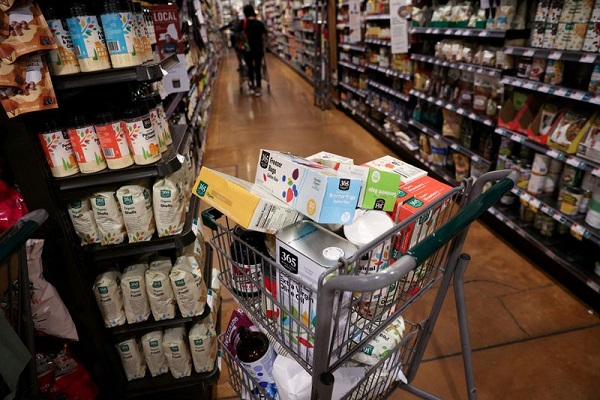Navitas stock soars as company advances 800V tech for NVIDIA AI platforms
By Scott Kanowsky
Investing.com -- U.S. consumer price growth is expected to decelerate slightly in August, with analysts citing a moderation in soaring energy costs that previously contributed to driving inflation to a 40-year high earlier this summer.
The U.S. Bureau of Labor Statistics' consumer price index - due out on Tuesday - is predicted to come in at 8.1% from July's reading of 8.5% and a four-decade peak of 9.1% in June. Month-on-month, CPI is seen at -0.1%.
Some economists have said an inflation-driven slowdown in demand for fuel is anticipated to play a key role in easing U.S. inflation.
"After adding a major boost to headline inflation over the first half of the year, energy prices are likely to be disinflationary for the second half of 2022, with most of the effect concentrated in August and September before flattening out towards the end of the year," analysts at Morgan Stanley said in a note.
The investment bank now predicts energy prices fell 6.4% after an "already-hefty decline" of 4.6% in July. But it flagged the outlook remains "highly uncertain" due to the risk of a drawdown in key Russian natural gas supplies to Europe.
Meanwhile, the estimate for core CPI - which strips away energy and food - is 0.3% month-on-month, matching July's level. Year-on-year, the core number is expected to edge up to 6.1%.
Analysts at UBS are projecting a 43 basis point increase in the monthly core figure, with higher costs for rents and medical services seen outweighing a drop in used car prices and airfares.
"Nonetheless, this projected August rise would represent some easing in the inflation trend and be below increases in 8 of the past 10 months," the UBS analysts said in a note.
The Morgan Stanley analysts also flagged the importance of lodging price growth in core CPI, saying it will provide "the clearest signal about the staying power of underlying inflation pressures." They added that Federal Reserve officials will want to see if there is a greater decrease in the prices of goods or services in core CPI as they consider their next interest rate decision.
"Goods prices are likely reflecting more about supply conditions, which the Fed has little control over, while services will send a clearer picture about demand," the Morgan Stanley analysts said.
The Fed has already raised borrowing costs by 225 basis points since March. But August's upcoming inflation print, as well as continued job market tightness and the support it brings to demand, may persuade policymakers to keep rates higher for longer.
The central bank's next scheduled meeting is September 20-21. More than 90% of traders expect it to bump up rates by 75 basis points for a third time this year, according to the CME's FedWatch tool.
